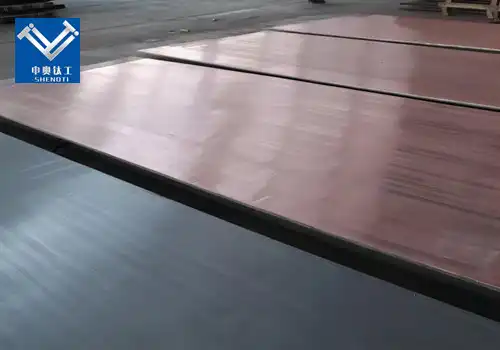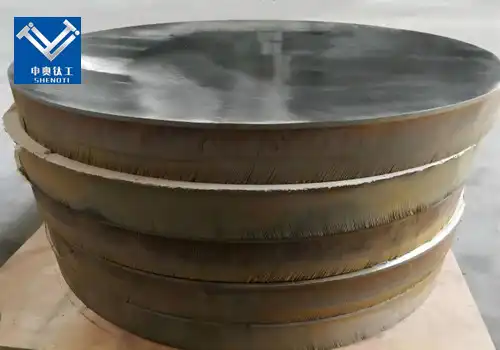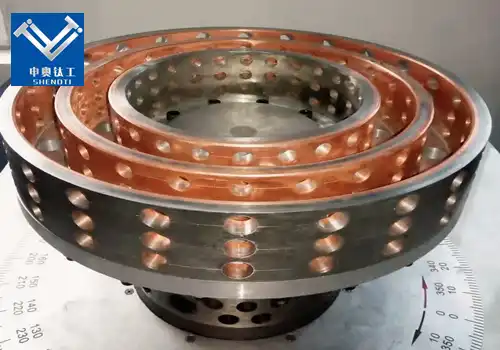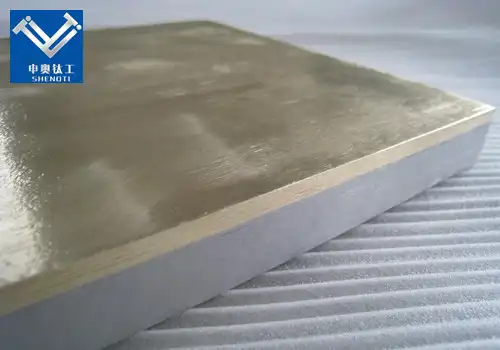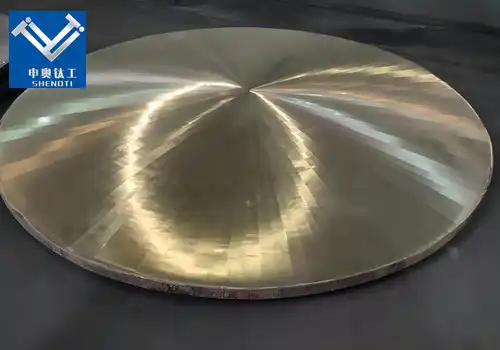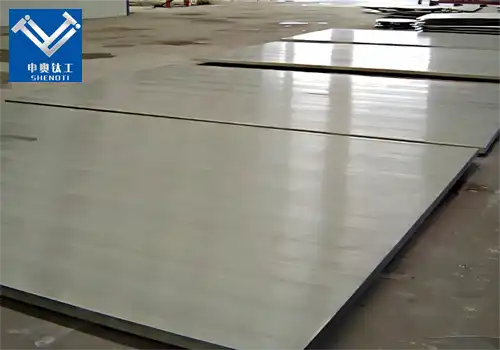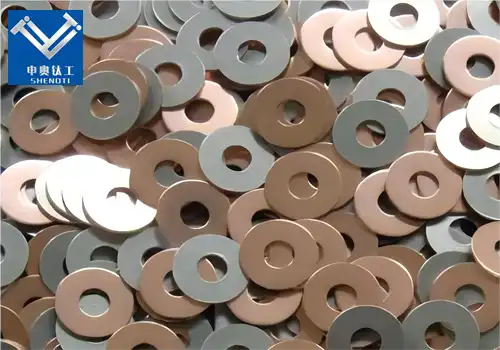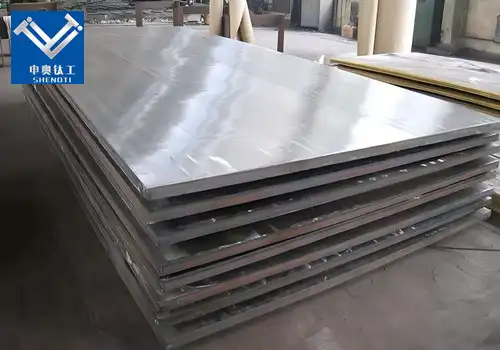
Why Use Titanium Anodes for Industrial Wastewater Treatment?
2025-08-22 15:39:06
Industrial wastewater treatment has become a critical challenge for modern industries as environmental regulations grow stricter worldwide. One advanced solution gaining global attention is the use of titanium anodes for industrial wastewater treatment. These innovative electrodes provide exceptional corrosion resistance, energy efficiency, and long service life, making them an ideal choice for treating complex wastewater streams from industries such as chemical manufacturing, electroplating, mining, and textile production.
What Are Titanium Anodes?
Titanium anodes are specialized electrodes manufactured from pure titanium substrates that are coated with a layer of mixed metal oxides (MMO) or precious metal coatings such as iridium oxide or ruthenium oxide. These coatings enhance the electrochemical properties of the titanium base, enabling the anodes to operate efficiently in highly corrosive wastewater environments.
Key Properties Titanium anodes for industrial wastewater treatment
Corrosion resistance: Titanium naturally forms a protective oxide layer, preventing structural degradation.
Durability: Service life can exceed 10 years under proper operating conditions.
High conductivity: Ensures efficient electrochemical reactions for wastewater treatment.
Eco-friendly: Coatings are engineered for minimal environmental impact.
Types of Titanium Anodes Used in Wastewater Treatment
MMO-coated titanium anodes – The most common type for wastewater treatment applications.
Platinized titanium anodes – Used in specialized, high-demand electrochemical systems.
Iridium and ruthenium oxide anodes – Known for strong stability and catalytic activity.
Why Use Titanium Anodes for Industrial Wastewater Treatment?
Wastewater from industries often contains toxic substances such as cyanides, phenols, heavy metals, and organic pollutants. Traditional treatment methods may not effectively degrade these compounds. Titanium anodes for industrial wastewater treatment provide a direct electrochemical oxidation process that breaks down complex pollutants into harmless by-products such as carbon dioxide, nitrogen gas, and water.
Advantages Over Conventional Methods
Enhanced efficiency: Titanium anodes enable high oxidation potential, effectively destroying organic and inorganic contaminants.
Cost savings: Reduced chemical usage and lower maintenance costs compared to traditional chemical treatment methods.
Energy efficiency: Optimized current distribution and conductivity ensure minimal energy loss.
Compact design: Suitable for integration into existing wastewater treatment plants.
Industries Benefiting from Titanium Anodes
Electroplating and metal finishing: Removal of heavy metals, cyanides, and organic compounds.
Textile industry: Treatment of dye-containing wastewater streams.
Pharmaceuticals and chemicals: Degradation of persistent organic pollutants (POPs).
Mining and metallurgy: Treatment of acidic and metal-laden wastewater.
How Titanium Anodes Work in Wastewater Treatment
1. Electrochemical Oxidation
The fundamental process involves passing an electric current through wastewater using titanium anodes as the active electrode. During electrolysis, reactive oxygen species (ROS) such as hydroxyl radicals are generated at the electrode surface. These radicals aggressively attack organic contaminants, breaking them down into simpler, non-toxic compounds.
2. Mechanisms of Pollutant Removal
Direct oxidation – Pollutants interact directly with the titanium anode surface.
Indirect oxidation – Pollutants are degraded by reactive intermediates like chlorine, ozone, or hydroxyl radicals produced at the anode.
Electrocoagulation support – Metallic ions formed at the cathode help precipitate suspended solids.
3. Efficiency Factors
Anode coating composition – Determines the oxidation potential and service life.
Current density – Impacts pollutant degradation rate.
Electrolyte conditions – pH, conductivity, and ion concentration influence treatment performance.
Technical Specifications of Titanium Anodes
Standard Parameters
Substrate: ASTM B265 Grade 1 or Grade 2 titanium sheets, rods, or mesh.
Coating: MMO (IrO₂, RuO₂, Ta₂O₅, TiO₂ mixtures).
Service life: 5–15 years depending on operating current density.
Operating current density: Up to 1000 A/m².
Operating temperature: 0–80°C.
pH range: 0–14, allowing treatment of both acidic and alkaline wastewater.
Customization Options
Shape: Mesh, plate, tube, rod, or custom configurations.
Size: Tailored according to reactor design.
Coating thickness: Adjustable for longer life or higher current tolerance.
Applications of Titanium Anodes in Wastewater Treatment
1. Cyanide Destruction in Electroplating Industry
Electroplating wastewater often contains high concentrations of cyanide compounds. Titanium anodes provide efficient electrochemical oxidation, converting cyanide into harmless carbon dioxide and nitrogen gas.
2. Removal of Heavy Metals
In mining and metal finishing wastewater, titanium anodes facilitate oxidation and precipitation of metals like chromium, lead, and nickel, making them easier to remove.
3. Treatment of Dye Wastewater
The textile industry faces challenges with color removal. Titanium anodes break down complex dye molecules, ensuring clear effluent discharge.
4. Pharmaceutical and Chemical Wastewater
Persistent organic pollutants (POPs) such as antibiotics, hormones, and solvents are resistant to conventional treatment. Electrochemical oxidation using titanium anodes effectively degrades these compounds.
Benefits of Titanium Anodes for Industrial Wastewater Treatment
1. Environmental Benefits
Reduces chemical sludge generation.
Lowers the use of hazardous oxidants like chlorine gas.
Enables recycling and reuse of treated water.
2. Economic Benefits
Extended service life reduces replacement costs.
Lower power consumption due to high electrochemical efficiency.
Decreased operational downtime thanks to minimal maintenance.
The use of titanium anodes for industrial wastewater treatment represents a transformative approach to addressing one of the most pressing environmental challenges. With their superior corrosion resistance, long service life, and high efficiency in pollutant degradation, titanium anodes are a cost-effective and sustainable choice for industries seeking compliance with environmental regulations and improved operational performance.
About Us
Baoji City ShenAo Metal Materials Co., Ltd. is a leading manufacturer specializing in titanium anodes, MMO-coated electrodes, and advanced clad metal materials. With years of expertise in non-ferrous metal technology, we provide high-quality solutions for industrial wastewater treatment, electroplating, chemical processing, and energy applications. Our products are engineered for durability, efficiency, and compliance with international environmental standards.
Contact Us
For more information on titanium anodes for industrial wastewater treatment, please contact us:
Email: zh@baojiti.com.cn
Website: www.shenaocladplate.com
Phone: +86-18729731603
Address: Baoji City, Shaanxi Province, China
YOU MAY LIKE











